Dietary fat, that is, which makes our meals delicious. But which fats are good and which are bad?
My first nutrition post touched on the wide variety of so-called healthy diets out there and what the commonality is with them all: “Why I ate nothing but meat for a year and why I’m eating plants again”
The second one was about the travels of Weston A Price and his discoveries of what was included in a range of healthy diets: “Dietary lessons from world travel, or why your teeth stick out”
The third one was going to be how to bring Price’s discoveries into the 21st century, but it soon became clear that would be far too big a post. So I’m just choosing one section.
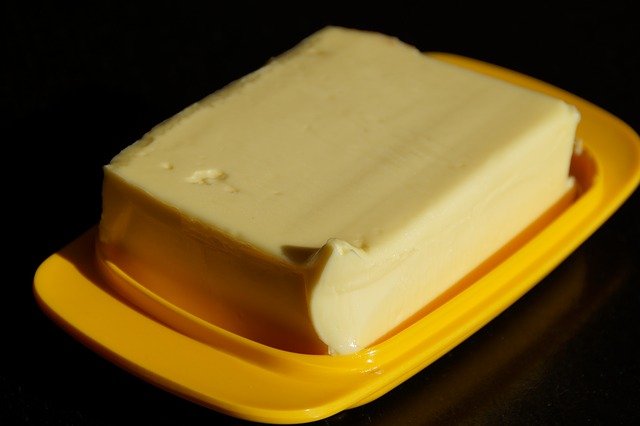
I was inspired to write this post by my conversation with a staff member at Commonsense Organics near where I live. I was buying ghee and mentioned in passing that the fats I use most for cooking are ghee and the pork lard they also stock. He asked how I used them, and now he’s keen to use them himself.
So I’m hoping this post will inspire you all to use real food fats, which are both delicious and beneficial.
We’ll start by discussing which fats are good or bad. Then the more fun bit of what to use to create delicious meals (or feel free to scroll down to that part straight away).
A good rule of thumb when deciding whether a fat is a real food fat is to ask “could my great grandmother have made this in her own kitchen?”
About 60 years ago, we started being told that saturated fat (found mainly in animal foods) was bad for us. This has never been proven and Price actually found most societies that were eating lots of animal fats were completely healthy.
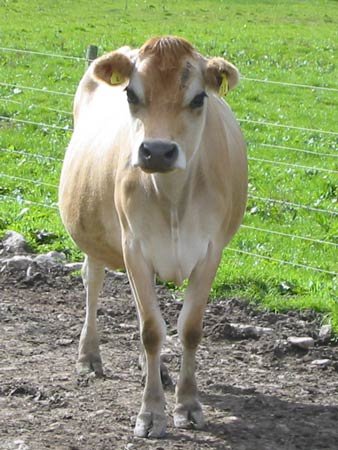
If we think about Grandma’s kitchen, we can see that the fats she could have made were:
• Lard and tallow (collected from a roast)
• Butter (made from cream and churned)
• Olive oil (olives readily give up their oil when crushed)
• and Coconut oil (will also give up some oil when crushed)
But could she have made rice bran oil, canola oil, soy oil, etc? We can see she could not. And Price found that the amounts of those oils were very small, as part of the whole food.
In that context, those oils were beneficial, but in the modern context of extracted oils, they are not. There are two problems with them.
• When we have large amounts of polyunsaturated plant oils, we have too much omega 6, which then is unbalanced with our omega 3 intake
• Extracting these oils is an industrial process which damages these fragile fats and makes them dangerous.
This is a very quick overview – for more detail see my webpage here.
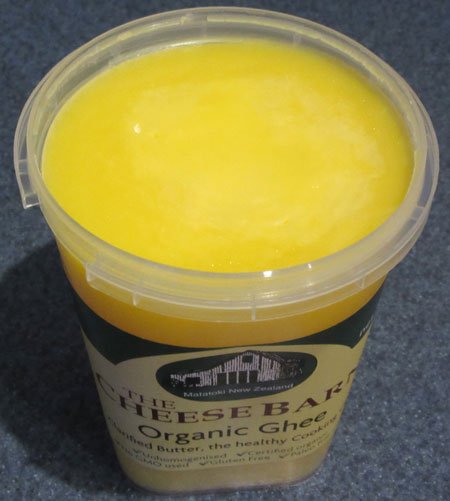
Now we know which fats are safe to eat, how do we use them?
Roasting
These are the fats I would use to make oven baked fries. These fries might be made from yams, kumera, sweet potato, pumpkin, butternut squash or even daikon radish. Or it might be a pan full of different roast vegetables including the ones I use for fries, or carrots, parsnips, beetroot (beets) and small onions or shallots. If you tolerate nightshades and starches well, you could also use potato, but we don’t have those at our house. In the photo below (of veggies ready to go in the oven), I have used Mediterranean style veges – capsium, zucchini and eggplant.
• Pork lard – this is a mild, stable fat which I can buy readily
• Duck or goose fat – I usually collect duck fat if I do a roast duck, and this gives a delicious flavour
• Lamb or beef tallow – also stable fats, and easy to collect from a roast, though they have a stronger flavour
• Coconut oil – I personally don’t use it for roast veg, as I don’t think the flavour goes as well with veg, but it’s a good stable oil, so suitable for that reason
Note that I don’t recommend olive oil. Extra virgin olive oil has many great properties, but they can be destroyed by heat.
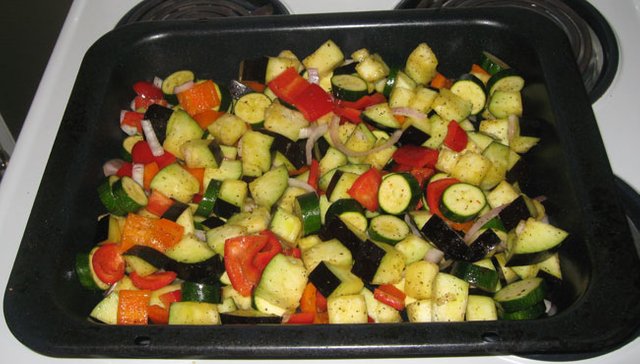
Stir or shallow frying
This category might include pan frying a steak or a fried egg, or an Asian style stir fry of some low starch veggies.
Any of the previous fats would be fine for this category too, depending what flavour you were going for. But I’m also very fond of, and probably use most often:
• Butter – who doesn’t love the taste of butter?
• Ghee or clarified butter – a more caramel flavour than butter, and very stable
• If you making an Asian dish, you can also use a small amount of peanut or sesame oil for an authentic flavour
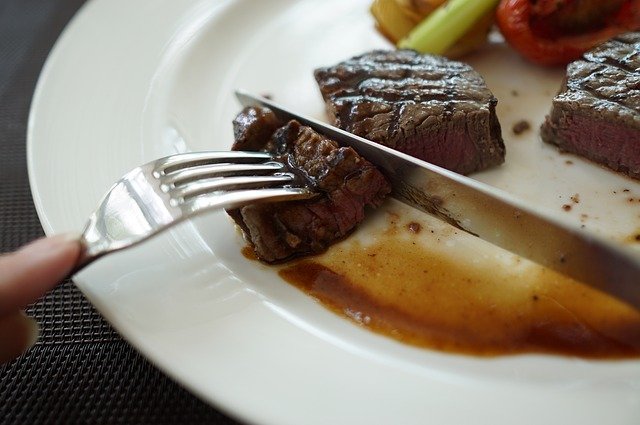
Deep frying
We don’t do any deep frying in our house, but if we did I would use this stable, traditional fat:
• Lamb or beef tallow
This is what they used in New Zealand fish and chip shops for years, till misguided political correctness forced them to change to toxic oils like canola or cottonseed (shudder).
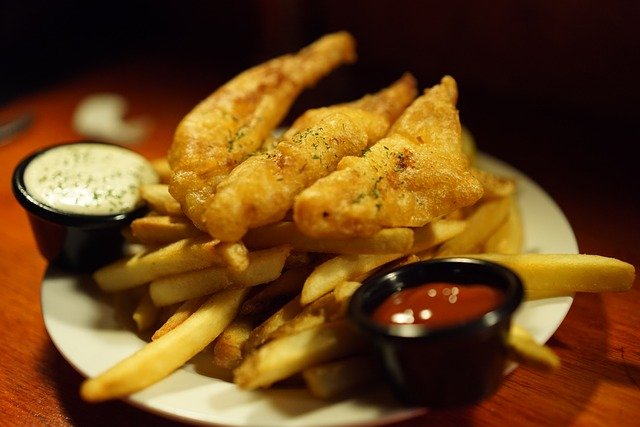
Dressings for salads, coleslaw, cooked veggies, or any savoury dish really
Here’s the ideal place to use your more fragile plant based oils, to make the most of their nutritional value. But we still want to minimise the ones high in omega 6s. So I only recommend:
• Extra virgin olive oil
• Very small amounts of avocado, sesame or macadamia oil (for flavour)
For an easy salad dressing, simply shake together in a small jar, till well mixed:
• 2 Tbs lemon juice
• 4 Tbs extra virgin olive oil
• Pinch of unrefined salt
See more variations on my recipe website
For your cooked veggies, you can also top them with a generous dollop of butter or ghee.
Note on extra virgin olive oil – some countries (especially Italy) export more olive oil than they grow olives (think about that for a moment). For that reason, along with the better flavour, I only buy New Zealand olive oil. Depending on where you live, you might need to do some research to find a good brand.
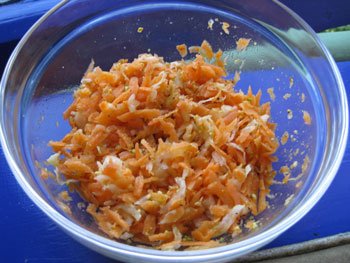
Baking
For cakes, muffins, biscuits (aka cookies), breads and other baked goods, these are my favourites:
• Butter or ghee – as long as you tolerate dairy, you can’t beat the flavour of these
• Coconut oil – but this is good if dairy doesn’t work for you, or you want to incorporate more coconut into your diet
• Palm oil (not palm kernel oil) is also good, but usually farmed unsustainably
• Duck fat – for something not too sweet, such as a bread, this can work well
The photo below is for my low starch Chrstmas morning muffins, inspired by a Nigella Lawson recipe. I’ll probably post the recipe here on Steemit closer to Xmas, but if you want to check them out now, visit my Recipe website.
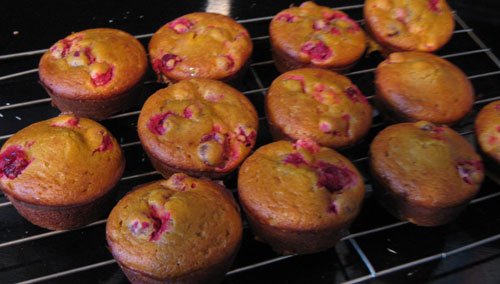
Un-baking
By this I mean homemade bars or slices of some kind. Typically these might also include some dried fruit or maybe some protein powder, bound together with some good fats.
• Coconut oil
• Creamed coconut
• Cocoa butter
• Nut butters
• Tahini
To make the slice pictured below, beat together:
• 250ml (1/2 jar) creamed coconut
• 50g coconut oil -OR- cocoa (cacao) butter
• 1 tsp vanilla essence or vanilla powder
Then stir through 200gm of chopped dried fruit of your choice. Pour into a tray lined with baking paper and set in the fridge. Chop up and store in the fridge.
This slice has dried currants, dried apple and freeze dried raspberries, but you can use many different combinations. If you’d like me to post my list of many variations in a separate Steemit post, let me know below.
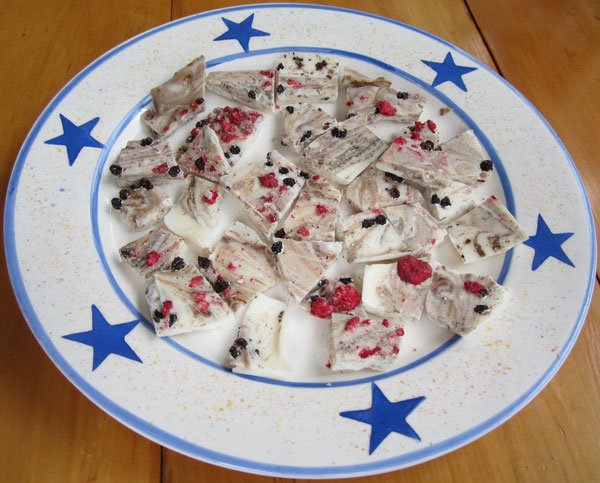
Smoothies or puddings
I use either dairy or plant based fats for these sweeter dishes:
• Cream or full fat yoghurt or kefir – for those who tolerate dairy
• Avocado – good for savoury smoothies, or for a vegan chocolate pudding
• Coconut cream, creamed coconut or coconut oil
• Nuts can be made into milk for a smoothie base
• Chia seeds are good for thickening up a breakfast “pudding”
• A very small amount of flax oil can be added to smoothies
Butter and coconut oil are sometimes added to hot drinks like tea and coffee as well - thanks to @artific for the reminder
See my Chocolate blackcurrant smoothie recipe here.
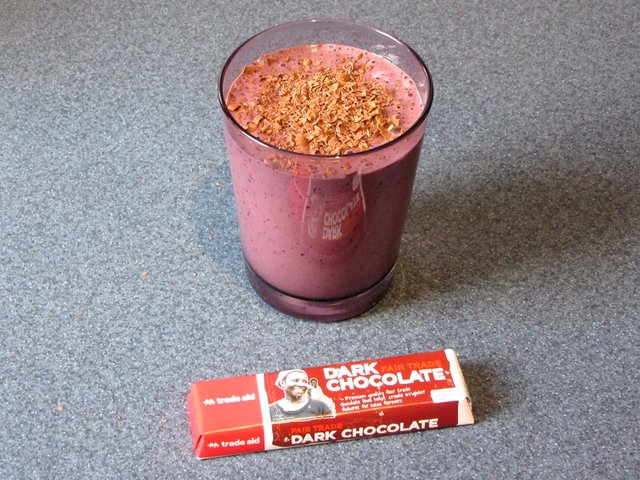
Supplements
Supplementary oils that are beneficial include:
• Fish oils
• Cod liver oil
• Flax oil
• Hempseed oil - thanks to @artific for the reminder
These are good sources of omega 3, but are generally only needed in small amounts – about ½ teaspoon a day. None of these should be heated, as they are very fragile.
Now enjoy the benefits of incorporating these delicious fats into your day!
Thanks for reading and upvoting! Follow me for more nutrition, health, life and recipe posts.
Pictures of butter, steak and fish & chips from Pixabay, the rest are our own photos.
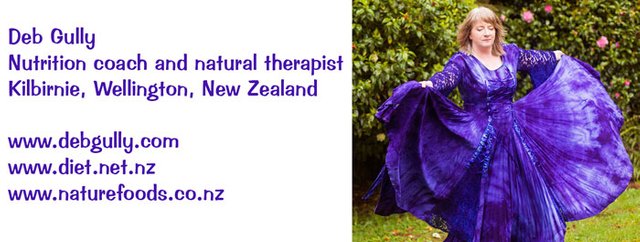
PS. If you can’t wait for my next post, my Recipe website http://www.frot.co.nz/design/recipes/ includes my real food cooking course – a 15 lesson, step by step guide to changing over to real food.
Thanks for referring me to this article. Makes me feel alot better about all the butter I eat. I have heard about the properties of extra virgin oil being destroyed when heating.I use it as a dressing - and try and use either light olive oil or coconut oil for cooking.
Its good to know that we dont need to be scared of fats like so many people think! We just need to be selective about the fats that we do eat :)
Downvoting a post can decrease pending rewards and make it less visible. Common reasons:
Submit
Exactly!
Downvoting a post can decrease pending rewards and make it less visible. Common reasons:
Submit
I just love coconut oil. I use it as a primary fat in all cookings and also in tea. It's also good as a skin moisturizer. Other good oil is hempseed oil. It has very good balance of omega-3 and omega-6 oils. It also has all the essential amino acids but you can't fry with hempseed oil because heat makes it bitter.
Downvoting a post can decrease pending rewards and make it less visible. Common reasons:
Submit
Good point about the hempseed oil. I'll add that to the supplemental oils list, or could go in smoothies. It's not readily available in NZ. And yes, I did mean to mention bulletproof tea / coffee , then forgot to add it. Thanks!
Downvoting a post can decrease pending rewards and make it less visible. Common reasons:
Submit
Also hot chocolate drink from raw cacao powder. :)
Downvoting a post can decrease pending rewards and make it less visible. Common reasons:
Submit
Yum! though for that I would probably add either coconut cream or raw dairy cream, rather the the oil. Just my personal preference.
Downvoting a post can decrease pending rewards and make it less visible. Common reasons:
Submit
Very good post, I have recently been learning about good & bad fats to share on my facebook health page. Everyone needs to know this information, thanks for sharing with Steemit!
Downvoting a post can decrease pending rewards and make it less visible. Common reasons:
Submit
I'm a vegetarian, so I don't use animal fats. But, I use the heck out of coconut oil, hemp oil, olive oil, etc. All the good oils. And avocado....man, do I use a lot of avocado. And, you can buy avocado oil, too, but I usually just use the whole fruit.
I'm mostly vegan, as well, but on the rare occasion I use dairy, it's organic butter. It's WAY healthier for you than margarine.
I even put olive oil in my sugar-free, gluten-free cookie recipes, both to give moisture, and to provide a buttery taste.
Downvoting a post can decrease pending rewards and make it less visible. Common reasons:
Submit
I totally understand the ethical reasons people want to be vegetarian, so nothing I'm about to say is a judgement on anybody. I kept this post fairly simple to make it more accessible, but I could have written a lot more about why the animal fats are important, why vegetable oils can be dangerous, why to avoid margarine, or about what @geke alluded to. And I know I promised to write about infertility and it's still on my list!
But this is part of it. The animal fats, plus seafood, are our best sources of vitamin A and vitamin D, which are vital for good fertility. There is no vitamin A in plant foods, only the carotenes, which need to be converted to the active form of Vitamin A, and not everybody can do that. We can get vitamin D from the sun, under certain optimal circumstances, but our main dietary source is the animal fats. So while there are many other factors, low vitamin A or D status is one big contributor to infertility. The societies that Weston Price visited all considered raw dairy, organ foods and seafood the sacred foods, and fed them to the young married couples to ensure fertility.
When you have an ethical position of not eating most of those animal foods, AND you are unable to tolerate dairy, this makes it very difficult, if not impossible, to get enough of these nutrients without supplementation.
The fats and oils you are using are great, and it's good that you haven't gone down the low fat road. But if you were able to use ghee, even if you have to avoid all other dairy, you might find that helpful.
Downvoting a post can decrease pending rewards and make it less visible. Common reasons:
Submit
(shudders) The thought of eating organ meats and seafood fills me with horror. I never liked eating meat as a kid, even before I became a vegetarian. It was just never my thing. Steak and seafood always turned my stomach. My naturopathic doctor who I saw for most of my early 20's always said if you craved something, your body needed it, and if you didn't like something, it was because there was something in it your body doesn't need, so you shouldn't eat it. I was never a meat fan. So, I gae it up. Plus, as I got older, my love of animals made me not want to eat them. :)
I'd love to try ghee. I see it at the health food store all the time, but have never bought any. I go for the organic butter. I guess I'm just not sure how to cook with it. Like, how high of a temperature can you go with it without browning it?
I DO supplement with Vit. D3 daily. :)
Downvoting a post can decrease pending rewards and make it less visible. Common reasons:
Submit
I agree with him up to a point. We all have different metabolic needs, and some are better suited to a plant based diet than others. But on the other hand, being deficient in zinc creates a dislike of red meat, which is ironically a good source of zinc. So you can never be entirely sure.
Since you have problems with dairy, ghee would be a great option for you, as it has the milk solids removed. Just use it anywhere you'd use butter. You are less likely to react to it, and it's less prone to burning without the milk solids. I don't usually cook at really high temperatures, so I'm not sure how high you can take it. (For high heat, I'd use the coconut). It's really yummy with brown rice and beans too.
Downvoting a post can decrease pending rewards and make it less visible. Common reasons:
Submit
I suspect it was more than just political correctness. What created that particular flavor of political correctness was most likely a business lobby heavily vested in agricultural or manufacturing/processing resources connected to canola / cottonseed oils. In fact... I think I might do some research down that bunny hole.
Downvoting a post can decrease pending rewards and make it less visible. Common reasons:
Submit
Oh yes, it definitely was - look up Ancel Keys.
Downvoting a post can decrease pending rewards and make it less visible. Common reasons:
Submit
Very informative! Thank you for the article!
Downvoting a post can decrease pending rewards and make it less visible. Common reasons:
Submit
Very good advice there, I do use olive oil alot, I am trying to use more coconut oil but keep forgetting. I used to use butter a lot in baking but dont bake much anymore but I might be persuaded after seeing you're christmas muffins :)
Downvoting a post can decrease pending rewards and make it less visible. Common reasons:
Submit
I have a lot of recipes I could share here, but my problem is I often don't have photos. But this one I have at the least finished product to show. Thanks for the reciprocal comment :-) :-)
Downvoting a post can decrease pending rewards and make it less visible. Common reasons:
Submit
Take pictures from the internet to highlight Cerrain parts.Wish you could save posts in your own file.
Downvoting a post can decrease pending rewards and make it less visible. Common reasons:
Submit
Hmmnn interesting. I need to get on this good butter-bandwagon. I just noticed that the place near where I work sells Ghee. I'll pick up some up next time I'm in.
Downvoting a post can decrease pending rewards and make it less visible. Common reasons:
Submit
It's a different flavour to butter, more caramel like, but I think you'll like it.
Downvoting a post can decrease pending rewards and make it less visible. Common reasons:
Submit